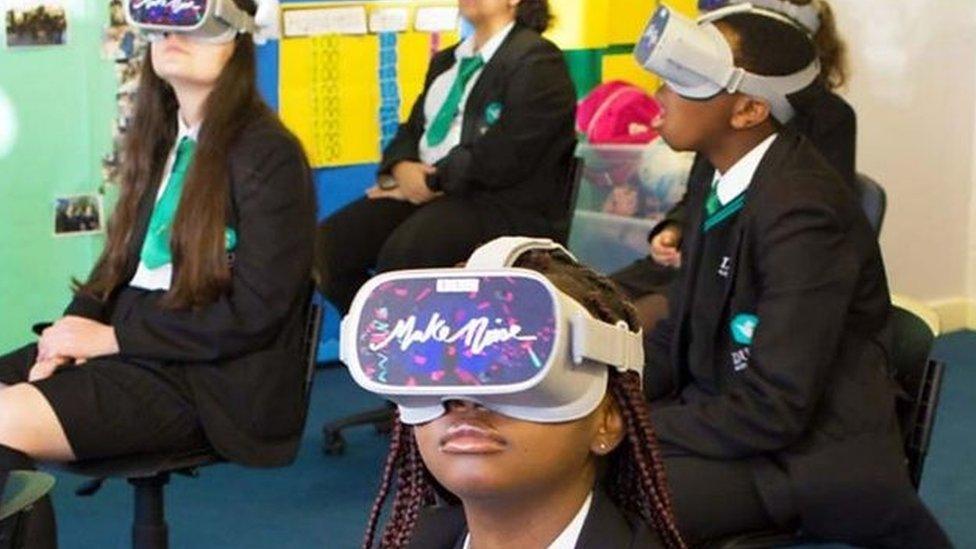Google and ҙуПуҙ«ГҪ scrap VR projects
- Published

The ҙуПуҙ«ГҪ made a range of content, including educational VR content
The ҙуПуҙ«ГҪ has disbanded the team it created to make virtual reality (VR) content, saying its funding has ended.
It comes as Google halts sales of its Daydream View headsets, admitting it does not see a future for smartphone-based VR.
There have been questions over the long-term future for the technology which has failed to become a mass market product.
One analyst said it could be several years before VR lived up to its hype.
In a statement, the ҙуПуҙ«ГҪ said: "The VR Hub had funding for two years so is now wrapping up its production and commissioning.
"It's been an important part of our charter commitment to promote technological innovation and maintain a leading role in research and development which benefits the whole industry."
The team was set up in November 2017 and has created VR films across news, comedy, drama and history. Its closure was announced in a blog post.
According to research firm IHS Markit, there will be 51 million consumer headsets in use around the world by 2023.
"Compared to mobile devices, this represents a niche audience so it is understandable the ҙуПуҙ«ГҪ is reconsidering its VR content strategy," said analyst Piers Harding-Rolls.
But he added: "With the introduction of volumetric video and 5G networks capable of providing distribution, VR video content is expected to become more compelling, but we are several years away from realising that vision."
Daydream View headsets
Speaking about its decision to abandon Daydream, Google said it had initially seen a lot of potential in smartphone VR.
"But over time, we noticed some clear limitations constraining smartphone VR from being a viable long-term solution. Most notably, asking people to put their phone in a headset and lose access to the apps they use throughout the day causes immense friction," it said in a statement.
"There also hasn't been the broad consumer or developer adoption we had hoped, and we've seen decreasing usage over time of the Daydream View headset. While we are no longer selling Daydream View or supporting Daydream on Pixel 4, the Daydream app and store will remain available for existing users."
It added that it was investing heavily in AR (Augmented Reality) experiences that use smartphone cameras to bridge the digital and physical worlds.
Mr Harding-Rolls was not surprised by its decision. "Daydream VR underperformed from launch and did not get the wider industry support that was expected. The decision will have a minimal impact on the consumer VR market, where the agenda is being set by Oculus/Facebook in the standalone space, and Sony in the console segment," he said.
- Published16 October 2019
- Published27 September 2019